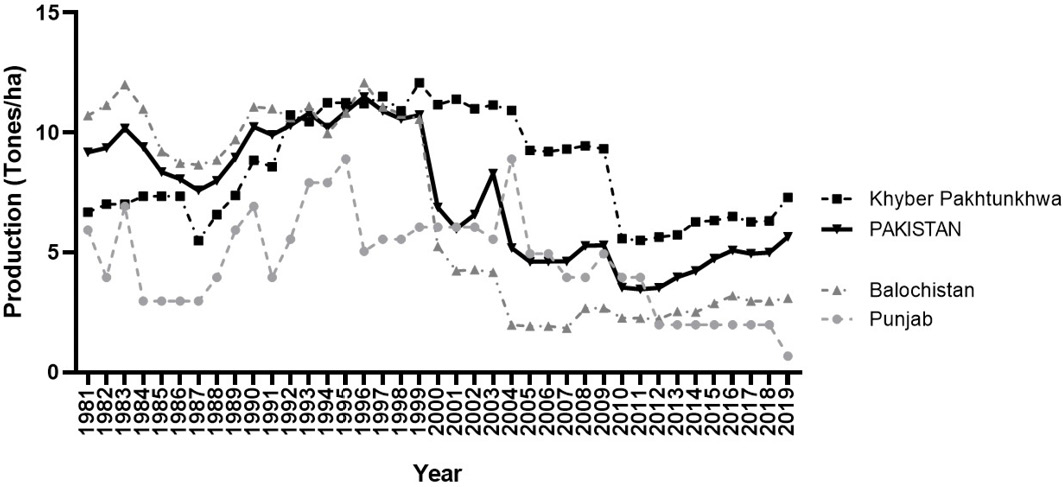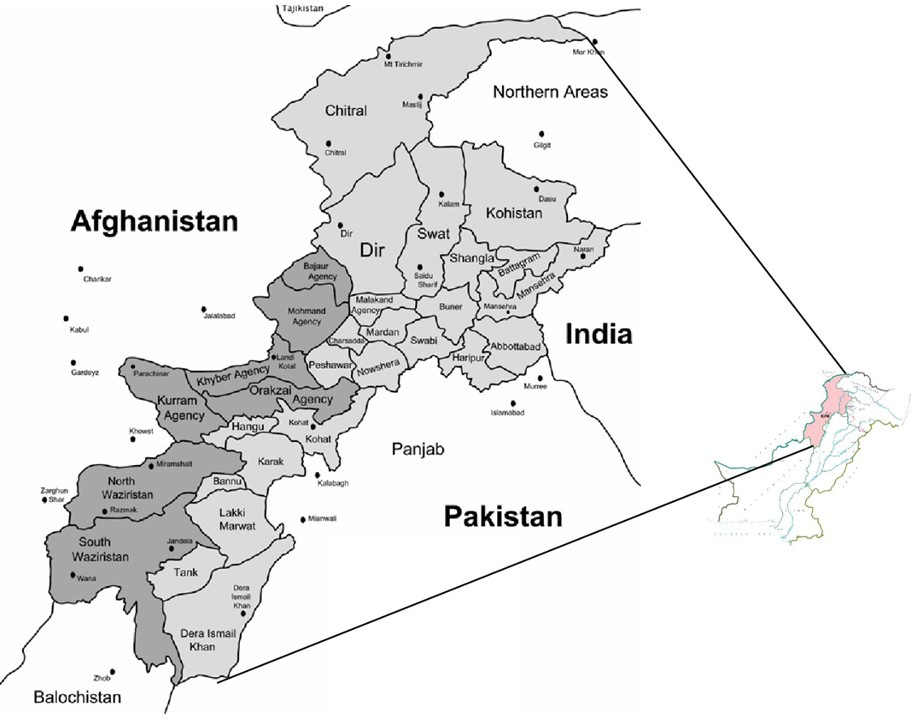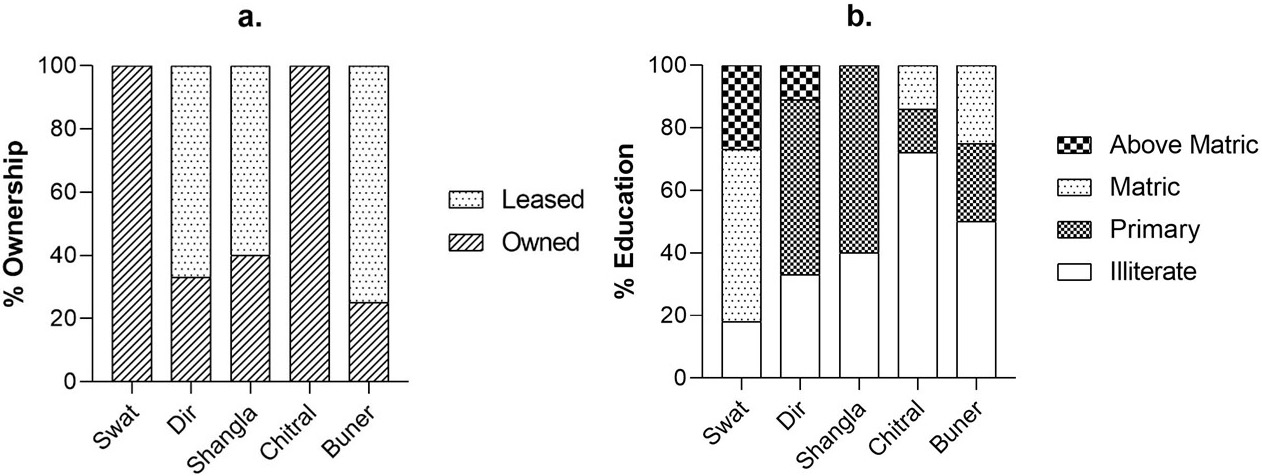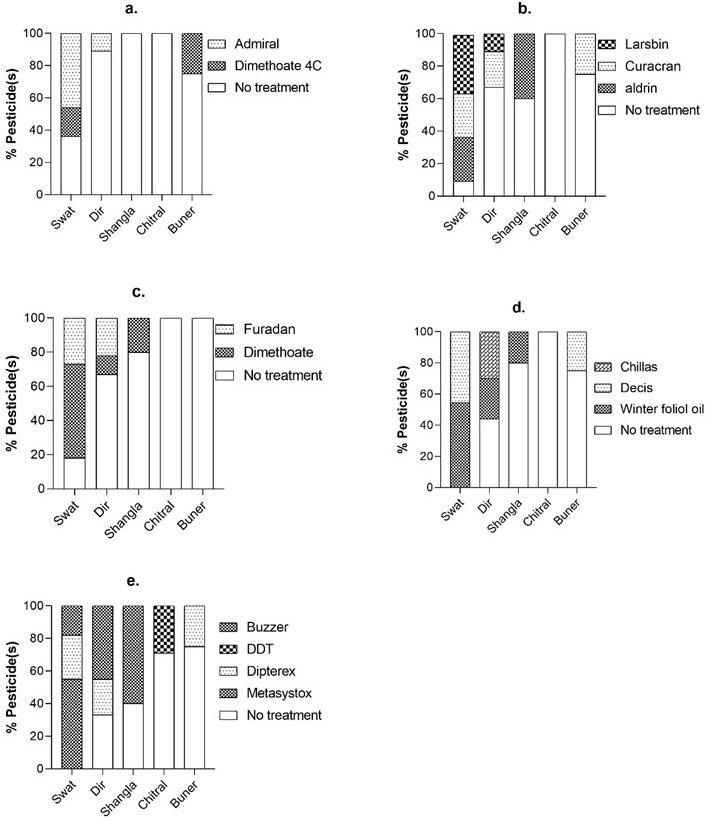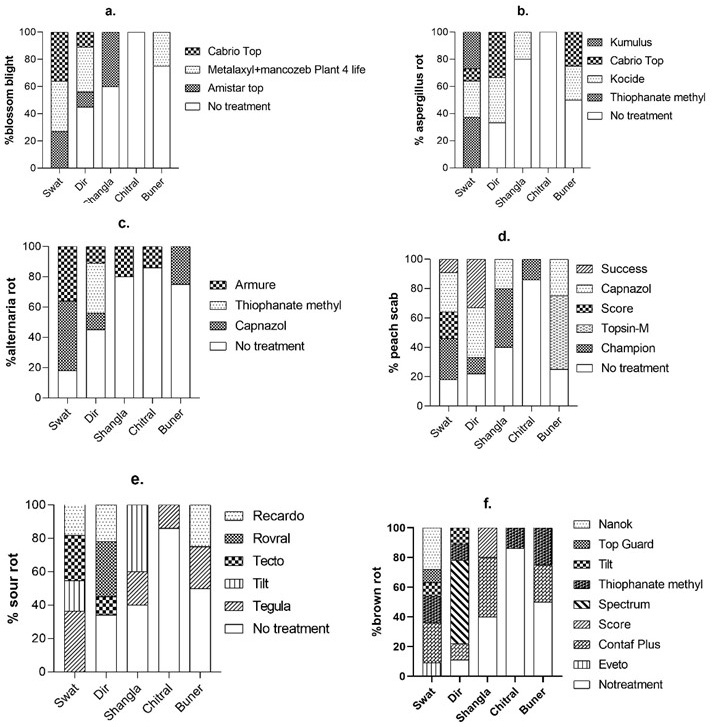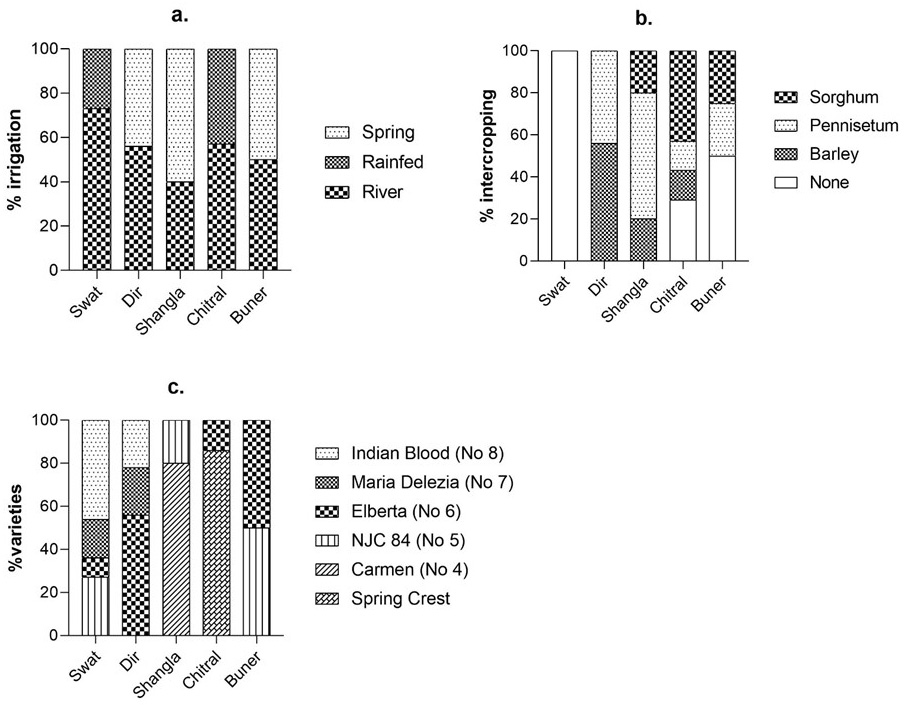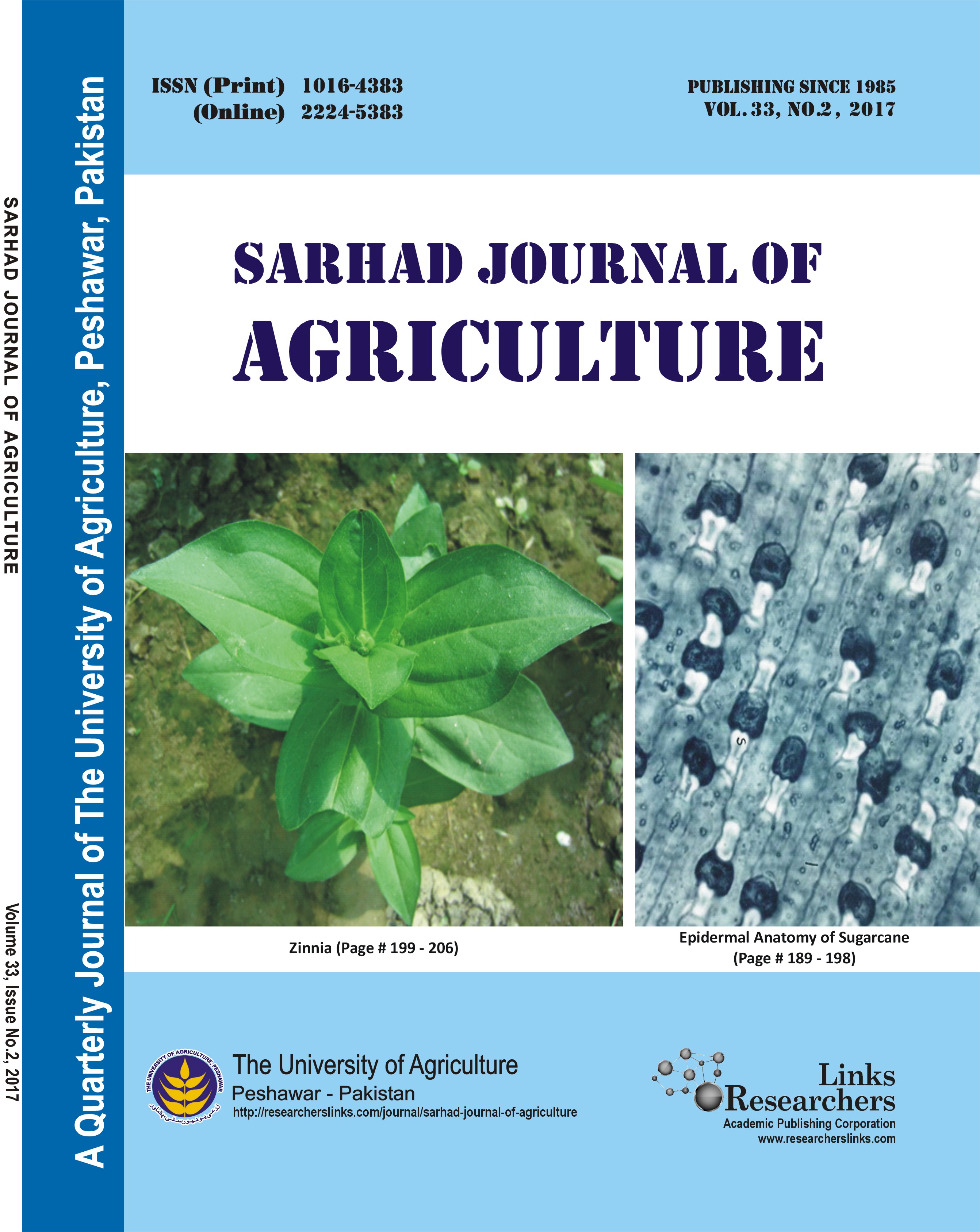Significance and Implications of Farming Practices, Knowledge and Methods of Disease Management in Developing Countries: A Case Study of Peach Farmers in Pakistan
Significance and Implications of Farming Practices, Knowledge and Methods of Disease Management in Developing Countries: A Case Study of Peach Farmers in Pakistan
Palwasha1, Siraj-ud-Din1 and Muhammad Fahim2*
Peach production statistics in Pakistan (1981-2019).
Map of the study area.
Regional differences of farmers in (a) Ownership (b) Education.
Regional differences in Farmers’ Awareness (a) Farmers knowledge about insects pests (b) knowledge about fungal diseases.
Chemical control of insect Pests. Insecticides used for the control of (a) thrips, (b) mites, (c) aphids (d) san jose scale and (e) fruitflies in the study area.
Chemical control of (a) blossom blight, (b) Aspergillus rot, (c) Alternaria rot (d) peach scab (e) sour rot and (f) brown rot in the study area.
(a) Percent irrigation types (b) percentage of intercropping (c) percentage of varieties cultivated.





